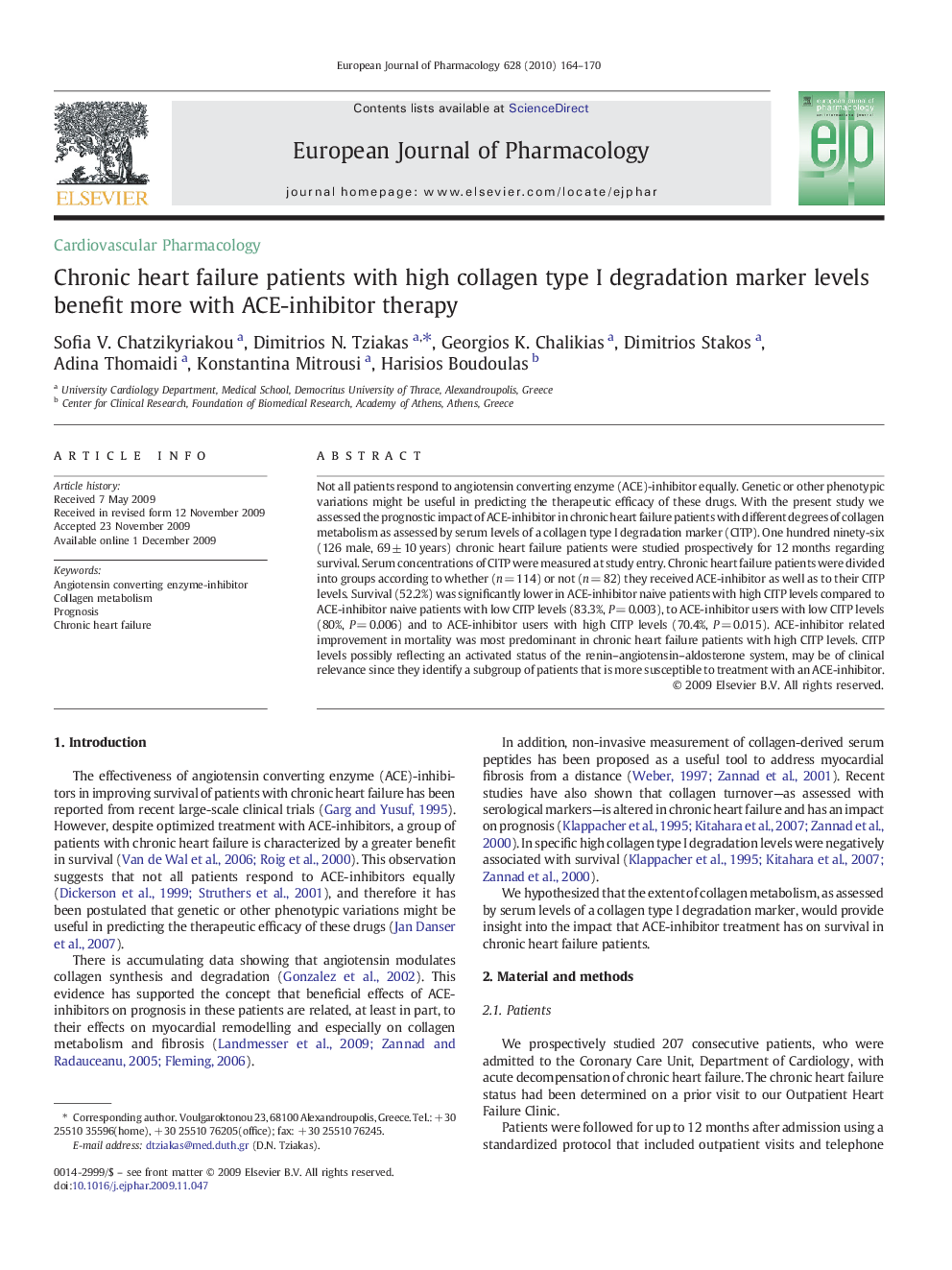| Article ID | Journal | Published Year | Pages | File Type |
|---|---|---|---|---|
| 2533818 | European Journal of Pharmacology | 2010 | 7 Pages |
Not all patients respond to angiotensin converting enzyme (ACE)-inhibitor equally. Genetic or other phenotypic variations might be useful in predicting the therapeutic efficacy of these drugs. With the present study we assessed the prognostic impact of ACE-inhibitor in chronic heart failure patients with different degrees of collagen metabolism as assessed by serum levels of a collagen type I degradation marker (CITP). One hundred ninety-six (126 male, 69 ± 10 years) chronic heart failure patients were studied prospectively for 12 months regarding survival. Serum concentrations of CITP were measured at study entry. Chronic heart failure patients were divided into groups according to whether (n = 114) or not (n = 82) they received ACE-inhibitor as well as to their CITP levels. Survival (52.2%) was significantly lower in ACE-inhibitor naive patients with high CITP levels compared to ACE-inhibitor naive patients with low CITP levels (83.3%, P = 0.003), to ACE-inhibitor users with low CITP levels (80%, P = 0.006) and to ACE-inhibitor users with high CITP levels (70.4%, P = 0.015). ACE-inhibitor related improvement in mortality was most predominant in chronic heart failure patients with high CITP levels. CITP levels possibly reflecting an activated status of the renin–angiotensin–aldosterone system, may be of clinical relevance since they identify a subgroup of patients that is more susceptible to treatment with an ACE-inhibitor.
